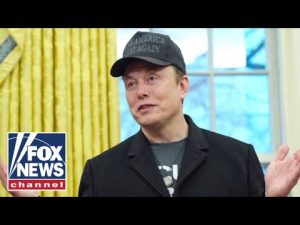In a surprising turn of events, Donald Trump recently made headlines by firing his national security adviser, Mike Waltz, while keeping defense secretary Pete Hexaf in his position. This decision didn’t just happen randomly; it was fueled by three key factors that reveal the inner workings of the Trump administration and its foreign policy priorities.
First up on the list is what some might call a communication blunder. Mike Waltz, who previously occupied a high-profile national security role, accidentally included a reporter in a chat discussing imminent military strikes in Yemen. Now, for anyone trying to climb the ladder in Trump’s world, that’s a classic faux pas. Trump has always been clear: protecting sensitive information is non-negotiable. In contrast, Pete Hexaf, although he may have added some sensitive military details to that same chat, managed to avoid the reporter blunder. You could say that in the game of high-stakes national security, one misstep can lead to an unexpected “you’re fired!”
Next, let’s dive into the heart of foreign policy ideology. It seems that Mike Waltz and Donald Trump have had some serious disagreements about how to handle international relations. Waltz’s views would lead the U.S. away from making favorable deals with Russia regarding the war in Ukraine and engaging in nuclear diplomacy with Iran. That’s a bit too much “team player” for Trump, who wants to maintain his “America First” stance. On the other hand, Hexaf is seen as more aligned with Trump’s vision, willing to navigate according to the MAGA playbook. This ideological rift made it easy for Trump to say goodbye to Waltz while holding on to Hexaf, who plays ball better in Trump’s foreign policy arena.
Finally, there’s the good old-fashioned element of personal relationships. People often say that relationships matter in politics, and Trump is no exception. Pete Hexaf has known Trump for a long time, and their history likely played a role in securing his position in the administration. Conversely, Waltz, despite his initial support for Trump during the campaign, had a rocky past with the former president that may have made him feel like an outsider. In the world of Trump, loyalty and familiarity can carry a lot of weight—even more than policy disagreements.
When putting these three factors together—a communication blunder, differing foreign policy ideologies, and longstanding personal relationships—it becomes clear why Waltz is on his way out while Hexaf remains in the Oval Office. In Trump’s administration, the stakes are high, and the choices are made with a blend of caution, ideology, and a pinch of personal loyalty. In the end, this shakeup serves as a reminder that in politics, particularly under Donald Trump’s leadership, it’s not just about the policies; it’s also about who you know and how you play the game.







